A Guide to understanding the History & Heritage of the Kruger National Park
Apart for its incredible fauna and flora the Kruger National Park also offers us some interesting insights into the region and the early settlers that called it home. Since the 8th Century the Park has been called home by migrants tribes, traders and fortune seekers. Here are some interesting insights that we have curated for you to learn more and better understand the Park.
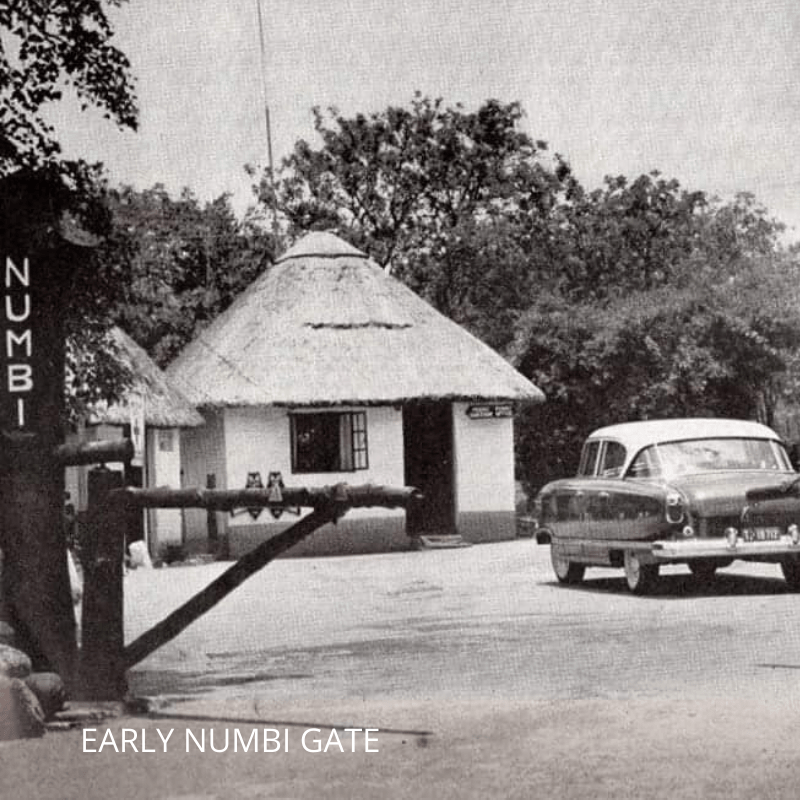
Numbi Gate
The first gate in the Park that allowed guests to enter was Numbi Gate. This was opened to tourists in 1926 but remnants can still be seen today of the original gate posts guard house. This was also our first family gate in 1932.
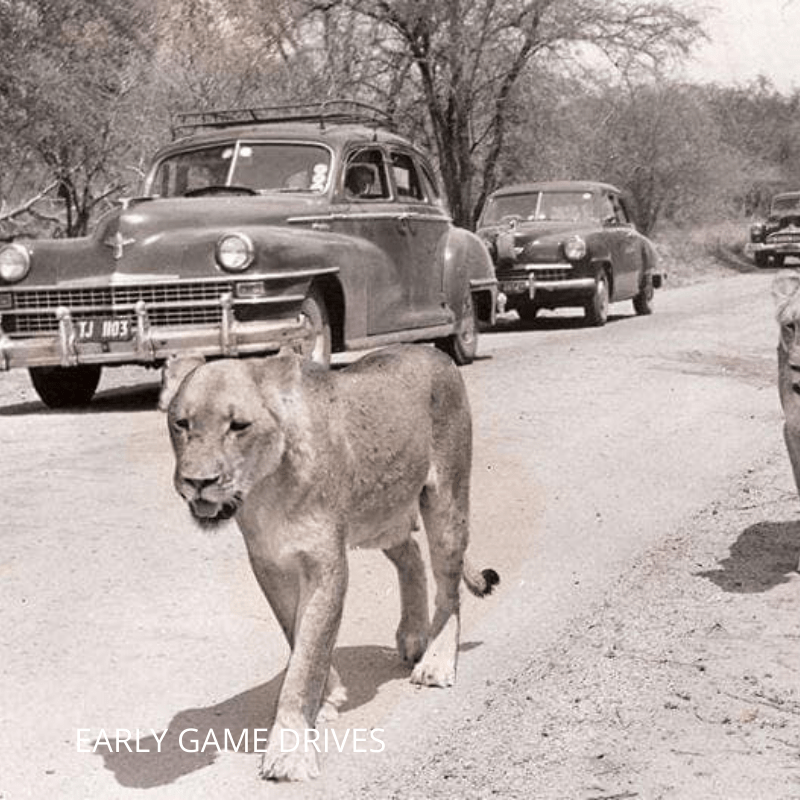
Early Visitors
After its grand opening in 1926 there were very few vehicle that accessed the Kruger Park. A grand total of 3 vehicles were recorded in the park during 1927, each being charged a one-pound entrance fee.
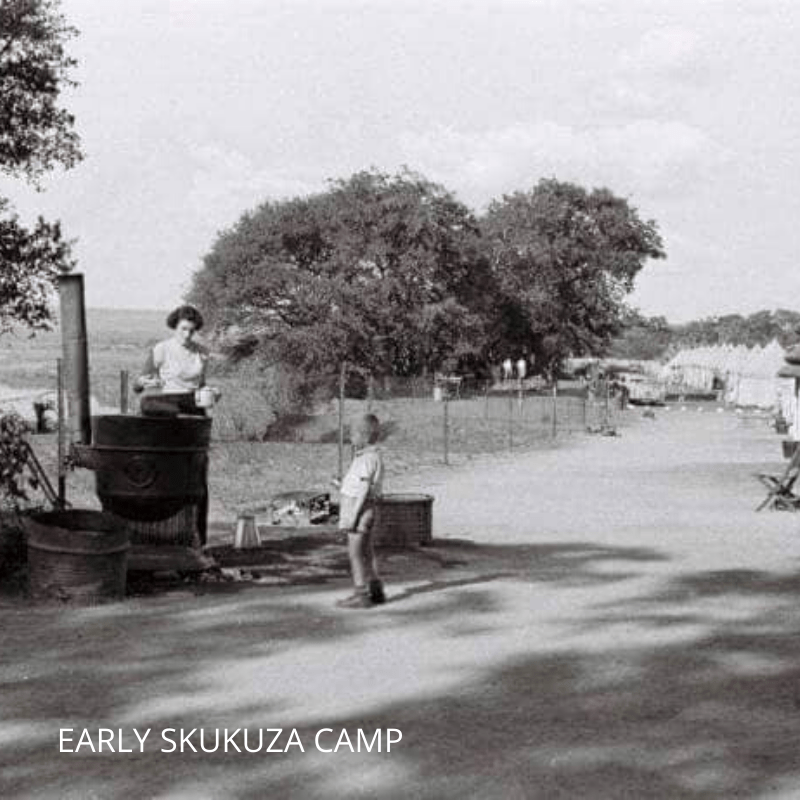
Skukuza
Today Skukuza is regarded as the "capitol" of the Park but it too came from humble beginnings. Originally known as the Sabi Crossing, its was the best place to cross the dangerous crocodile infested river with the first main bridge.
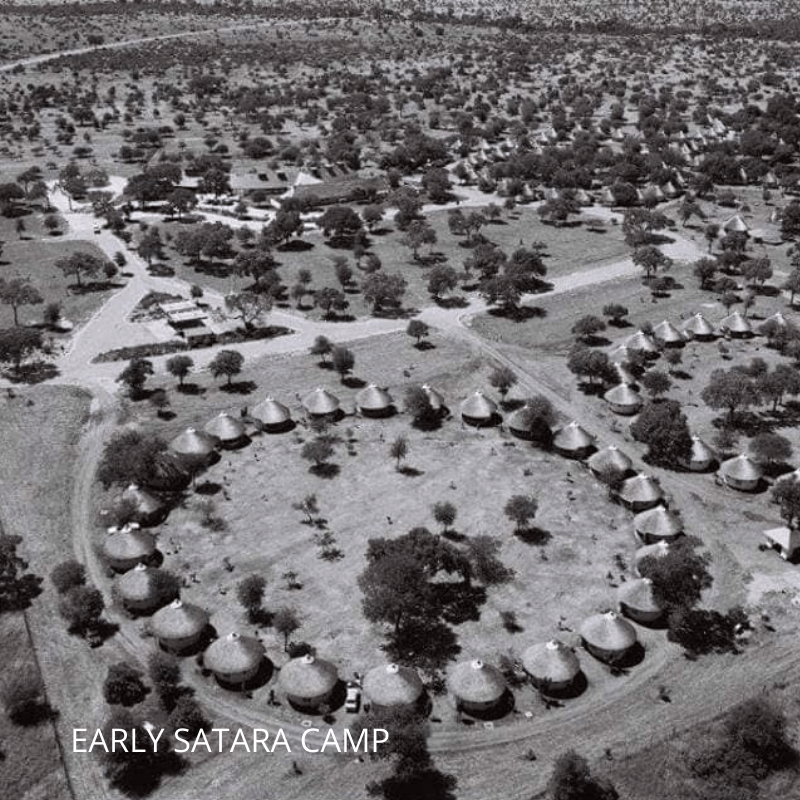
Kruger's first camps
It was finally in 1928 that the establishment of facilities for tourists finally commenced. The first three tourist “rest huts” were built at Satara, Pretoriuskop and Skukuza. From then on the demand created a boom that would change Kruger forever.
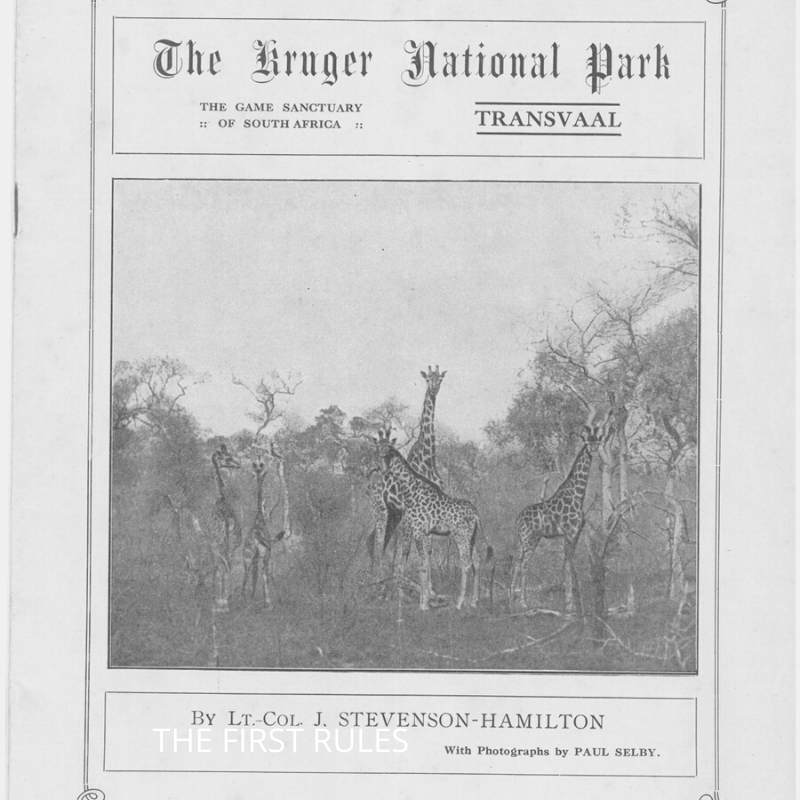
Early rules in the Park
When the Kruger National Park was opened to tourists in the late twenties, there were rather few rules and regulations besides that of firearms being prohibited. Since then there has of course been several amendments but in the beginning it was still wild and free.
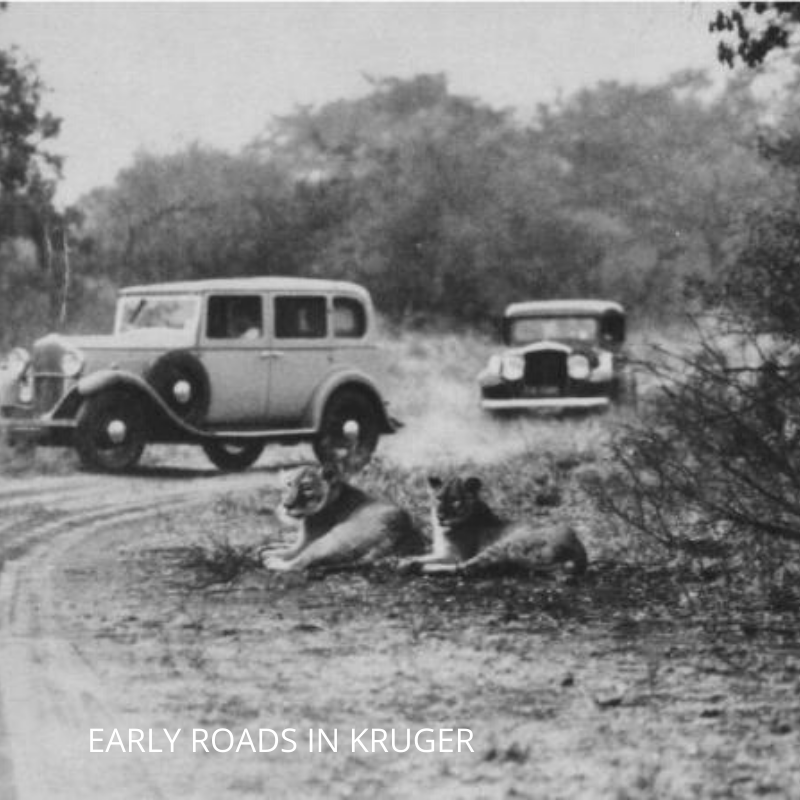
Kruger's first roads
Up until the proclamation of the Kruger Park in 1926, the Selati railway line, ox wagons, buggy carts, pack donkeys and horses represented the only forms of transport. There were no vehicles or roads but that was soon to change as Kruger grew in popularity.
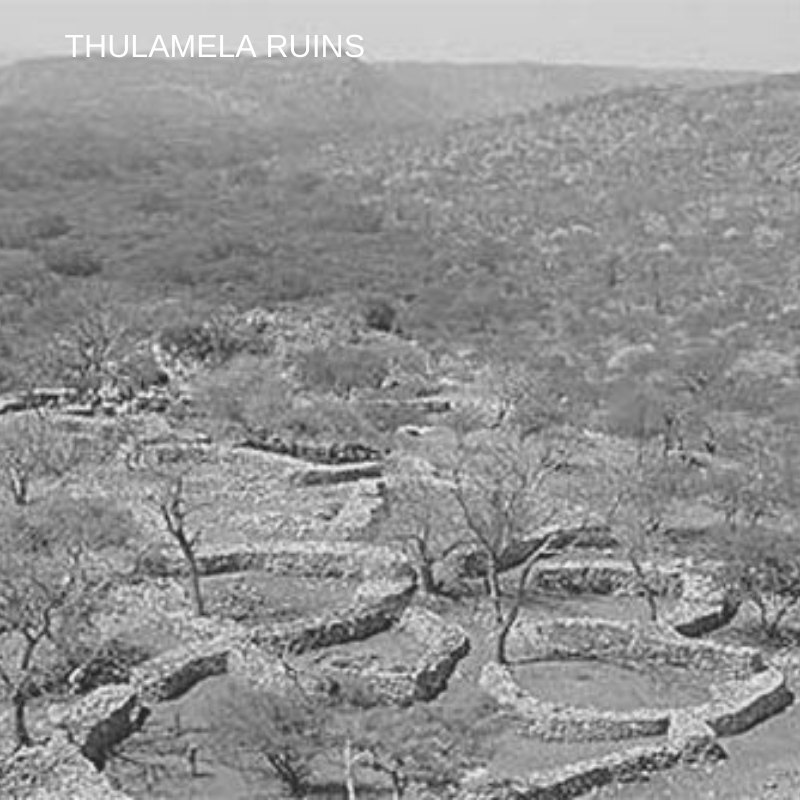
Kruger's first inhabitants
SIgn's of early man's presence in the Kruger Park dates back to the 8th Century. Rich in archaeological history the Park offers guests the opportunity to explore these early sites and better understand Krugers origins.
Kruger National Park: A Legacy of Wildlife and Conservation
Kruger National Park, located in northeastern South Africa, is a world-renowned sanctuary spanning 19,485 km² of pristine savanna, woodlands, and rivers. Established in 1898, it is South Africa’s first national park and a global leader in conservation, home to the iconic Big Five (lion, leopard, elephant, buffalo, and rhino) and a vibrant tapestry of biodiversity. This SEO-optimized guide explores Kruger’s rich history, conservation milestones, biodiversity, and unforgettable safari experiences, inviting you to discover its living legacy.
The Birth of Kruger: 1898–1926
Kruger National Park’s story began in 1898 when Paul Kruger, president of the Transvaal Republic, established the Sabie Game Reserve to protect the Lowveld’s wildlife from rampant hunting. This modest reserve, covering the area between the Sabie and Crocodile Rivers, faced challenges during the Anglo-Boer War (1899–1902), which left it vulnerable to poaching.
In 1902, James Stevenson-Hamilton, the park’s first warden, took charge. Nicknamed “Skukuza” (meaning “destroyer” in local languages) for evicting settlers, he laid the foundation for conservation. His efforts culminated in 1926 when the National Parks Act merged the Sabie and Shingwedzi Game Reserves to form Kruger National Park. Early visitors paid a pound to explore a wilderness where lions were once culled as pests and elephants were recovering from near extinction. Today, Skukuza is the park’s largest camp, honoring Stevenson-Hamilton’s legacy.
Growth and Challenges: 1926–2000
From the 1920s to the 1950s, Kruger evolved into a global safari destination. Stevenson-Hamilton’s anti-poaching patrols and new roads boosted wildlife populations and tourism. The Big Five became synonymous with African adventure. However, this growth came at a cost:
Indigenous Displacement: Communities were forcibly removed to create the park, leaving a complex legacy of land rights issues that persist today.
Poaching Surge: By the late 20th century, rhino poaching intensified, driven by demand for their horns.
Ecological Management: Fences built in the 1960s to control disease disrupted migrations. Overpopulation, particularly of elephants, led to culling from the 1960s to 1994 to protect vegetation and other species.
Kruger’s cultural heritage also emerged, with over 300 archaeological sites, including San rock art and Iron Age ruins at Thulamela, revealing human history dating back 500,000 years to Homo erectus.
A New Era: 2000–2025
The 21st century marked a transformative phase for Kruger:
Great Limpopo Transfrontier Park (2002): Kruger joined Zimbabwe’s Gonarezhou and Mozambique’s Limpopo parks, creating a 35,000 km² wildlife corridor for free-roaming animals.
Conservation Innovations: By 2025, drones and AI-powered monitoring combat poaching, while conservation fees from visitors support sustainability. Kruger is a contender for UNESCO Biosphere Reserve status.
Climate Adaptation: Park management balances elephant populations (~34,000 in 2025) with habitat health, learning from past culling to maintain ecological equilibrium.
Community Partnerships: Initiatives engage local communities, addressing historical injustices and fostering shared conservation goals.
Kruger’s Biodiversity: A Wildlife Haven
Kruger National Park boasts unmatched biodiversity, making it a safari paradise:
Mammals: Home to 147 species, including the Big Five, giraffes, cheetahs, and endangered African wild dogs (~400 in South Africa). Lions roar across prides, leopards stalk silently, and elephants shape landscapes.
Birds: With 556 species (As per the recent edition of Roberts - Birds of KNP), Kruger is a birder’s dream. Spot summer migrants like the Pennant-winged Nightjar or residents like the ground hornbill, part of the “Big Six Birds” (including martial eagle and saddle-billed stork).
Plants: Over 1,982 species, from water-storing baobabs to vibrant fever trees and acacias, support diverse ecosystems like savannas, woodlands, and riverine forests.
Ecosystems: From dry mopane scrub in the north to lush thornveld in the south, Kruger’s landscapes host termite mounds, crocodile-filled rivers, and grasslands beneath the Lebombo Mountains.
The Kruger Safari Experience
A safari in Kruger is an immersive journey into nature’s heart:
Game Drives: Dawn drives reveal elephants bathing in golden light, while night safaris spotlight leopards’ glinting eyes.
Walking Safaris: Guided trails let you track animals and feel the bush’s pulse alongside expert rangers.
Eco-Diversity: Explore varied habitats, from the arid north to the lush south, each teeming with wildlife and stories of survival.
In 2025, Kruger’s 127-year legacy blends adventure with conservation. Visitors contribute to preservation through eco-tourism, ensuring the park thrives for future generations.
Fascinating Kruger Facts
Size: 19,485 km², roughly the size of Israel or New Jersey.
Big Five: Lion, leopard, elephant, buffalo, and rhino draw millions of visitors.
Cultural Heritage: Archaeological sites reveal 500,000 years of human history.
Conservation Milestone: The park’s elephant population grew from near extinction in 1902 to ~34,000 in 2025.
Tourism Impact: Kruger welcomes over 1.8 million visitors annually, supporting conservation through fees.
Why Visit Kruger National Park?
Kruger is more than a destination; it’s a living mosaic of wildlife, history, and conservation triumph. From Paul Kruger’s vision to modern transfrontier parks, it embodies humanity’s commitment to preserving nature. Whether you’re captivated by a lion’s roar, a baobab’s silhouette, or ancient rock art, Kruger offers an unforgettable safari experience. Plan your visit to witness this UNESCO-contender’s legacy and contribute to its future.
Explore Kruger National Park safaris, Big Five adventures, and conservation stories to start your journey!
What our guests say :
" Our Guide Andrew was an awesome host, very knowledgable about all things wild from Termites to Leopards. He took our cue that we wanted to know more about the park other than just the animals. He parted with knowledge that was amazing to see and backed it up with sights and sounds that were just as remarkable. I would give Andrew a 6 our of 5 rating if that were possible./i>"
What is a Kruger Park Day Tour ?
A Kruger Park Day Tour is a guided tour through the Kruger National Park on a Open Safari Vehicle. Kruger Park Day Tours are either half or full day in duration and guests are guided through the Park and provided an informative tour with explanations of animals, the history and heritage of the Park.
Safaria Kruger Park Tours include:
Professional bush guide with Open Safari Vehicle
Blankets and Rain Ponchos on vehicle should the weather change
Children of 3 years and older are welcome
Safari cappuccino on your vehicle
Refreshing Safaria still water provided on vehicle
Vehicle Wifi
Personal Safaria sightings journal
Rates include VAT
Why choose a private Guided Kruger Park Day Tour ?
There is no better way to experience the Kruger National Park than on a Full Day tour in a Open Safari Vehicle with an expert guide. Professional guided Kruger Park Day Tours, like to ones Safaria offer, are by far the best way to experience the Kruger National Park. With an expert guide you are guaranteed to see more and experience more. Having your own private guide is like having a resource of knowledge and information on the savanna, knowing which areas are best to explore based on the seasons, and an opportunity to learn about the history and heritage of the Park. Along with having a Private Guide you travel through the savanna in an Open Safari Vehicle which better connects you to the wilderness and gives you un-interrupted views and a higher vantage point
Safaria offers guests the Premium Kruger Park Day Tour experience with expert guides and the best and most luxurious Open Safari Vehicles. Safaria offers Kruger Park Day Tours from all of the main Kruger Park gates, these include: Malalane, Numbi, Phabeni, Paul Kruger and Orpen Gate.
Booking you Kruger Park Day Tour?
Booking your Kruger Park Day Tour is simple. Visit www.safaria.co.za and on the landing page select your preferred Kruger Park Day Tour. We recommend that you select the Full Day Kruger Park Tour as the extra hours in the savanna offers you the greatest opportunity to see more of the wildlife and experience more of the landscape.
Here is a quick step by step overview of how to book your Kruger Park Day Tour :
Visit safaria.co.za
Select either a Full Day, Sunrise or Afternoon Safari
Click Book Now on your preferred Day Tour
Review the overview of the selected tour and then click Book this Safari
Select the Date on which you would like to go (bookings must be made 24hr prior)
This will bring up a time slot, click on the Time Slot and availability
Enter the equal number of guests in your group for both the Safari and the Kruger Park Gate fee. (Include the gate fee and we will administrate on your behalf)
Click Book at the bottom the bottom of the page
Complete all your personal details and indicate from which Gate or Hotel you wish to be collected.
Select a payment method (credit card is safe and easy)
Enter your credit card details and then click “Finalize Booking”
Your booking is now completed.
You will receive an email confirmation immediately as well as a personal email from Safaria within 24hrs confirming your booking and details.
Lastly, all you need to do is send passport copies to bookings@safaria.co.za so we can finalize your entrance to the Park. This is a convenience service we offer guests to avoid wasting time at the Gates.
Where do we get collected for our Kruger Park Day Tour ?1
Meeting with your guide on the day of your Kruger Park Day Tour is all-dependent on how far your accommodation is for the nearest Kruger Park gate. If you are staying within 15km from a Kruger Park entrance gate, then we can collect you from your accommodation and make the short journey to the gate on the Open Safari vehicle. If your accommodation is further than15km, then we would collect you for the nearest Kruger Park Gate at the agreed time. On request a transfer can be provided and will collect you from your accommodation and take you to the nearest Kruger Park gate and then return you after your Kruger Park tour.
We do advise guests that for both safety and comfort, a transfer is advised for longer distance travel from accommodation to the entrance gates.
Collection time is based on the time of year and season. These collection times are aligned to opening and closing times of Kruger National Park gates. During the summer month’s collection is earlier and later in winter months. Kruger Park Day tour collection and drop off times as follows:
October to March collection : 05h30am
April to September collection : 06h15am
On arrival at the agreed Kruger Park Gate for collection, guests are provided with safe and secure parking to leave their vehicle. Your guide will be already waiting at the gate and visible with a branded Safaria Open Safari Vehicle. Should you have included the Kruger Park entrance fee into your payment to Safaria, we would have already finalized your entrance into the park. Guest only have to then sign the indemnity which is handed in by their guide and your Kruger Park Day Tour will begin. You guide will start with a pre-drive safety briefing and then you will depart and journey into the savanna.
What happens on a Kruger Park Day Tour ?
Once your guide has completed the pre-drive safety briefing you will begin to explore the wilderness. A typical full day Kruger Park Day Tour itinerary is structured as follows:
06h00am – Depart from the entrance gate making your way into the park
09h00am – Breakfast stop and comfort break at one of the main camps
09h45am – Back on safari vehicle exploring the savanna in search of wildlife
12h30pm – Lunch stop and comfort break at one of the main camps
13h30pm - Back on safari vehicle exploring the savanna in search of wildlife
16h00pm – Drop-off back at entrance gate
Safaria offers guests flexible private Safari experiences that are tailored to our guests needs. This means that vehicles are exclusively booked and time frames and itinerary are customized and bespoke.
What should you bring on a Kruger Park Day Tour ?
The adventure of Safari is often unpredictable so we advise that our guests kindly bring with them the following items to ensure that they are well prepared for their Kruger Park Day tour. Camps in the Kruger Park are well stocked and guests are able to purchase any of the below items at these Park Shops. We suggest the following:
Camera
Binoculars
A good bush hat for summer months or warm beanie in winter
Sunscreen
Sunglasses
Zip off cargo pants
Jersey, Warm Jacket or Track top that can be taken off
Comfortable shoes
Small back pack for personal items
Any specific medication
What should you wear on a Kruger Park Day Tour ?
From experience here are our suggestions on the right kind of attire for your Kruger Park Day Tour. These recommendations are based on the specific time of year and are suggested to ensure that you are both comfortable and adequately dressed from your adventure.
Months : September to April
Cool functional attire preferably in dull neutral shades to create uniformity with vehicle and not stand out visually to game species. Always remember a good hat as well as sunscreen. Midday temperatures in Summer can reach upward of 40 degrees and afternoons can experience thunder showers. All vehicles are equipped with blankets and waterproof ponchos for our guests.
Summer attire:
Zip of cargo pants
Good Hat
Technical long sleeve shirt with SPF 30+ or a T-shirt is also find
Zip up rain jacket to keep you dry not for warmth
Comfortable shoes
Winter Months : May to August
During the winter months we typically experience blue skies with a daily average temperature of 20 - 25 degrees celcius. Early morning and late afternoons are cooler and we recommend warmer attire as this is amplified when travelling on an open safari vehicle. We do provide blankets on the vehicles but also recommend dressing warm with items that can be layered and removed around midday.
Winter attire:
Jeans or Cargo pants
Good Hat
T-Shirt or long sleeve shirt
Warm Jacket or Hoodie
Beanie
Comfortable shoes
We do day tours from the following destinations :
Kruger Park Day Safari from Skukuza
Kruger Park Day Safari Tour from Skukuza
Kruger National Park Day Safari from Skukuza
Kruger National Park Day Safari Tour Skukuza
Kruger Park Day Safari from Pretoriouskop
Kruger Park Day Safari Tour from Pretoriouskop
Kruger National Park Day Safari from Pretoriouskop
Kruger National Park Day Safari Tour Pretoriouskop
Kruger Park Day Safari from Berg-en-dal
Kruger Park Day Safari Tour from Berg-en-dal
Kruger National Park Day Safari from Berg-en-dal
Kruger National Park Day Safari Tour Berg-en-dal
Kruger Park Day Safari from Hazyview
Kruger Park Day Safari Tour from Hazyview
Kruger National Park Day Safari from Hazyview
Kruger National Park Day Safari Tour Hazyview
Kruger Park Day Safari from Nelspruit
Kruger Park Day Safari Tour from Nelspruit
Kruger National Park Day Safari from Nelspruit
Kruger National Park Day Safari Tour from Nelspruit
Kruger Park Day Safari from White River
Kruger Park Day Safari Tour from White River
Kruger National Park Day Safari from White River
Kruger National Park Day Safari Tour from White River
Kruger Park Day Safari from Sabie River Bungalows
Kruger Park Day Safari Tour from Sabie River Bungalows
Kruger National Park Day Safari from Sabie River Bungalows
Kruger National Park Day Safari Tour from Sabie River Bungalows
Kruger Park Day Safari from Protea Hotel Kruger Gate
Kruger Park Day Safari Tour from Protea Hotel Kruger Gate
Kruger National Park Day Safari from Protea Hotel Kruger Gate
Kruger National Park Day Safari Tour from Protea Hotel Kruger Gate
Kruger Park Day Safari from Protea Hotel Hazyview
Kruger Park Day Safari Tour from Protea Hotel Hazyview
Kruger National Park Day Safari from Protea Hotel Hazyview
Kruger National Park Day Safari Tour from Protea Hotel Hazyview
Kruger Park Day Safari from Kruger Park Lodge
Kruger Park Day Safari Tour from Kruger Park Lodge
Kruger National Park Day Safari from Kruger Park Lodge
Kruger National Park Day Safari Tour from Kruger Park Lodge
Kruger Park Day Safari from Casterbridge Hollow
Kruger Park Day Safari Tour from Casterbridge Hollow
Kruger National Park Day Safari from Casterbridge Hollow
Kruger National Park Day Safari Tour from Casterbridge Hollow
Kruger Park Day Safari from Hippo Hollow
Kruger Park Day Safari Tour from Hippo Hollow
Kruger National Park Day Safari from Hippo Hollow
Kruger National Park Day Safari Tour from Hippo Hollow
Kruger Park Day Safari from Sanbonani Hazyview
Kruger Park Day Safari Tour from Sanbonani Hazyview
Kruger National Park Day Safari from Sanbonani Hazyview
Kruger National Park Day Safari Tour from Sanbonani Hazyview
Kruger Park Day Safari from Mjejane
Kruger Park Day Safari Tour from Mjejane
Kruger National Park Day Safari from Mjejane
Kruger National Park Day Safari Tour from Mjejane
Kruger Park Day Safari from Leopard Creek
Kruger Park Day Safari Tour from Leopard Creek
Kruger National Park Day Safari from Leopard Creek
Kruger National Park Day Safari Tour from Leopard Creek
Kruger Park Day Safari from Oliver's
Kruger Park Day Safari Tour from Oliver's
Kruger National Park Day Safari from Oliver's
Kruger National Park Day Safari Tour from Oliver's
Kruger Park Day Safari from Marloth Park
Kruger Park Day Safari Tour from Marloth Park
Kruger National Park Day Safari from Marloth Park
Kruger National Park Day Safari Tour from Marloth Park
Kruger Park Day Safari from Ngwenya Lodge
Kruger Park Day Safari Tour from Ngwenya Lodge
Kruger National Park Day Safari from Ngwenya Lodge
Kruger National Park Day Safari Tour from Ngwenya Lodge
Kruger Park Day Safari from Numbi Hotel Hazyview
Kruger Park Day Safari Tour from Numbi Hotel Hazyview
Kruger National Park Day Safari from Numbi Hotel Hazyview
Kruger National Park Day Safari Tour from Numbi Hotel Hazyview
Kruger Park Day Safari from Numbi Hotel Hazyview
Kruger Park Day Safari Tour from Numbi Hotel Hazyview
Kruger National Park Day Safari from Numbi Hotel Hazyview
Kruger National Park Day Safari Tour from Numbi Hotel Hazyview
Kruger Park Day Safari from Sabi Sands
Kruger Park Day Safari Tour from Sabi Sands
Kruger National Park Day Safari from Sabi Sands
Kruger National Park Day Safari Tour from Sabi Sands
Kruger Park Day Safari from Belgrace
Kruger Park Day Safari Tour from Belgrace
Kruger National Park Day Safari from Belgrace
Kruger National Park Day Safari Tour from Belgrave
Kruger Park Day Safari from Perrysbridge Hotel
Kruger Park Day Safari Tour from Perrysbridge Hotel
Kruger National Park Day Safari from Perrysbridge Hotel
Kruger National Park Day Safari Tour from Perrysbridge Hotel
Kruger Park Day Safari from Summerfields
Kruger Park Day Safari Tour from Summerfields
Kruger National Park Day Safari from Summerfields
Kruger National Park Day Safari Tour from Summerfields
Kruger Park Day Safari from Timmamoon
Kruger Park Day Safari Tour from Timmamoon
Kruger National Park Day Safari from Timmamoon
Kruger National Park Day Safari Tour from Timmamoon
Kruger Park Day Safari from Thulamela
Kruger Park Day Safari Tour from Thulamela
Kruger National Park Day Safari from Thulamela
Kruger National Park Day Safari Tour from Thulamela
Kruger Park Day Safari from Hoedspruit
Kruger Park Day Safari Tour from Hoedspruit
Kruger National Park Day Safari from Hoedspruit
Kruger National Park Day Safari Tour from Hoedspruit
Safaria Privately Guided Kruger Park Safaris & Day Tours
Offering the best One day tour and safari in the Kruger National Park
Here are a few frequently asked questions regarding Kruger Park Day tours that we have answered. Safaria offers guests the Premium Kruger Park Day tour experience with a variety of bespoke Half and Full Day experiences.







